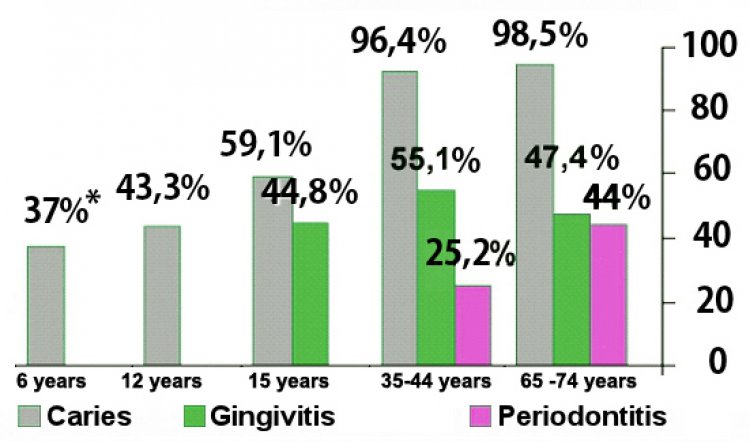Dental caries the most common infectious disease worldwide
Various studies show that xylitol has strong alkaline properties that help kill caries-causing bacteria and mineralize teeth, bones and gums for lasting protection

As the years go by, oral problems increase and oral hygiene and dental care become more and more important. Effective dental hygiene is primarily about inhibiting the growth of caries-producing bacteria. Acidity is important for bacterial growth, and caries bacteria especially love an acidic environment.
Foods that increase acidity in the mouth primarily include refined and industrially processed foods such as sugar, white flour, milk, eggs, meat, and many other foods that we regularly consume that promote the growth of caries bacteria.
As long as the oral environment is acidic, the body cannot properly mineralize the teeth and gums. To neutralize the acidity, the body needs minerals from food or from the bones themselves, which weakens the whole organism.
Therefore, in addition to proper oral hygiene, an alkaline and mineral-rich diet plays an important role. When caries-causing bacteria grow in an acidic environment, they are reduced in an alkaline environment.
Various studies show that xylitol has strong alkaline properties that help kill caries-causing bacteria and mineralize teeth, bones and gums for lasting protection.
Xylitol in conventional dental care products
However, in order to block the acid, it is important that xylitol remains effective in the mouth for at least 6 minutes. Unfortunately, xylitol dissolves very quickly in saliva and disappears.
In food and drug production, xylitol is an unstable substance. Therefore, the processing of xylitol in dental care products is a difficult undertaking if one really wants to achieve good results.
The best known products, such as chewing gum and xylitol tablets or pellets, where the xylitol is supposed to stay directly in the mouth for a while, have other additives and substances for stabilization, but these have a negative influence on the effect of the xylitol, or often the concentration of xylitol is too low.
And despite their excellent properties, relatively few xylitol products have yet become established in dental care.
Chewing gums, for example, contain too low a concentration of xylitol (less than 65%) and other sweeteners and additives that impair or neutralize the effectiveness of the xylitol, so that a large amount must be taken daily in order to feel any effect at all.
On average, someone would have to eat at least 15 chewing gums a day to feel any effect on improving dental hygiene.
The concentration of xylitol in the tablets is usually much higher, but very often it has to be mixed with other additives to stabilize the product.
Tablets are steam pressed or glazed and the xylitol dissolves much too quickly in the mouth, thereby significantly reducing the desired effect.
Abedulce has succeeded with the tooth crystals to stabilize the xylitol in the purest form so that it can act between 7-12 minutes in the oral cavity and exploit its full potential. This ensures professional dental care.
